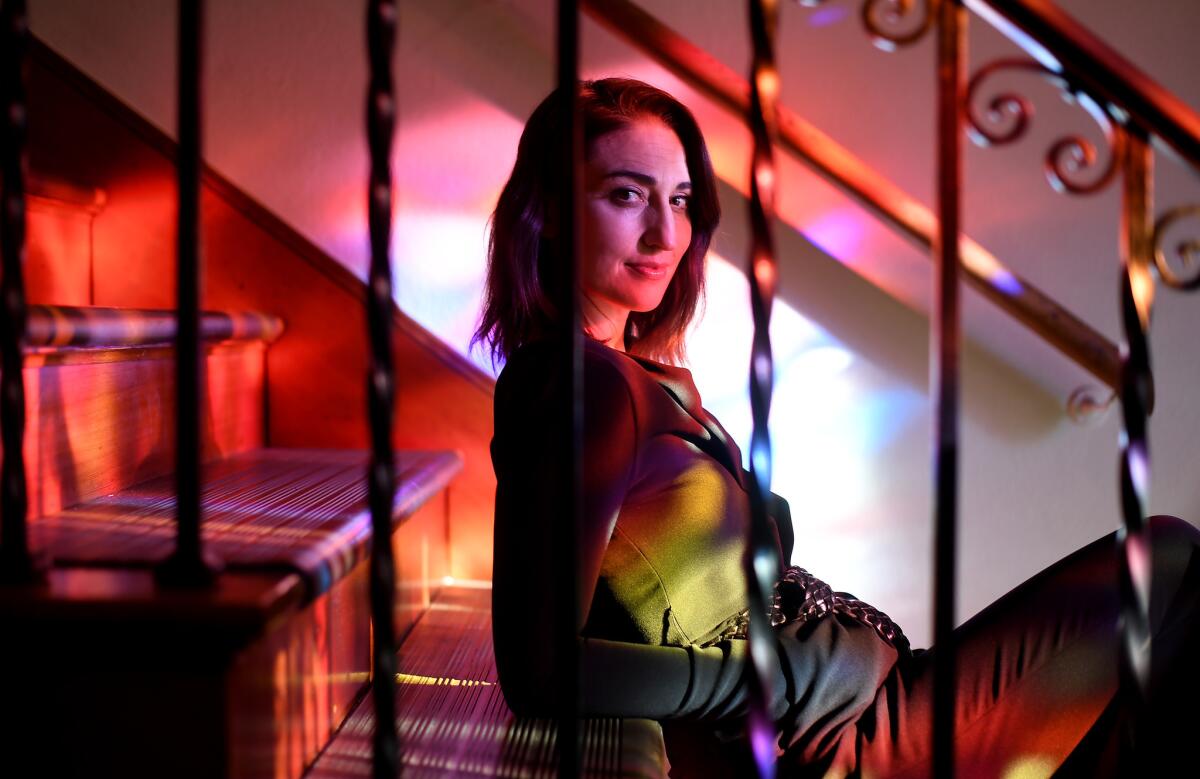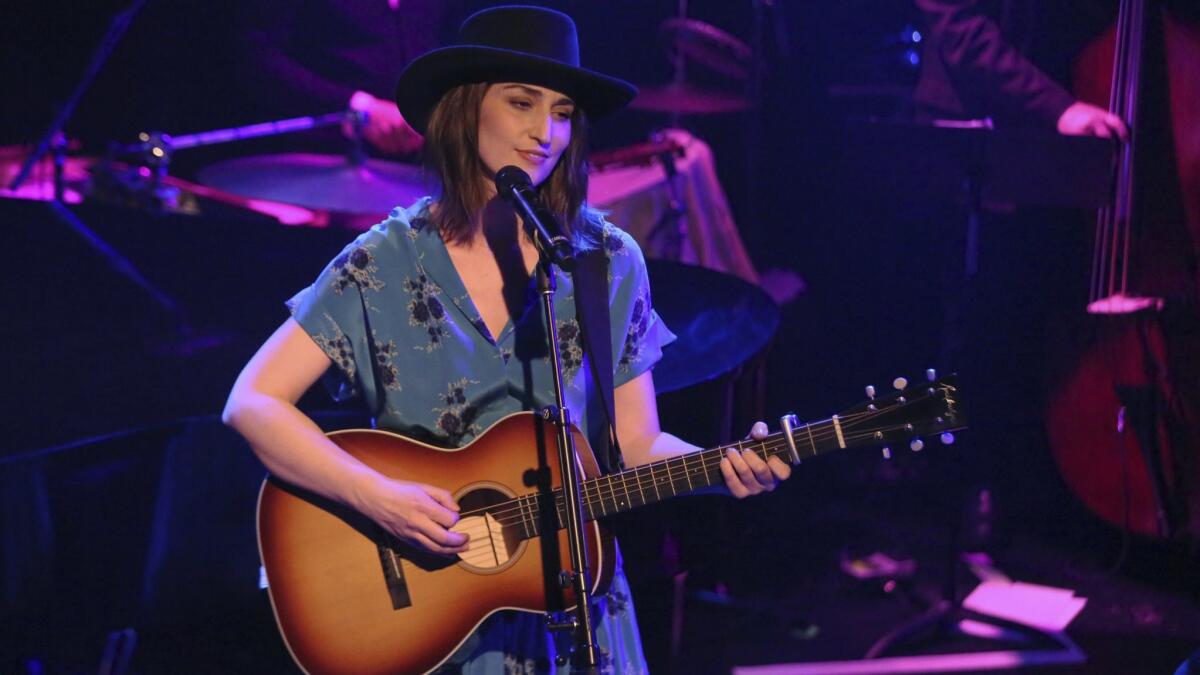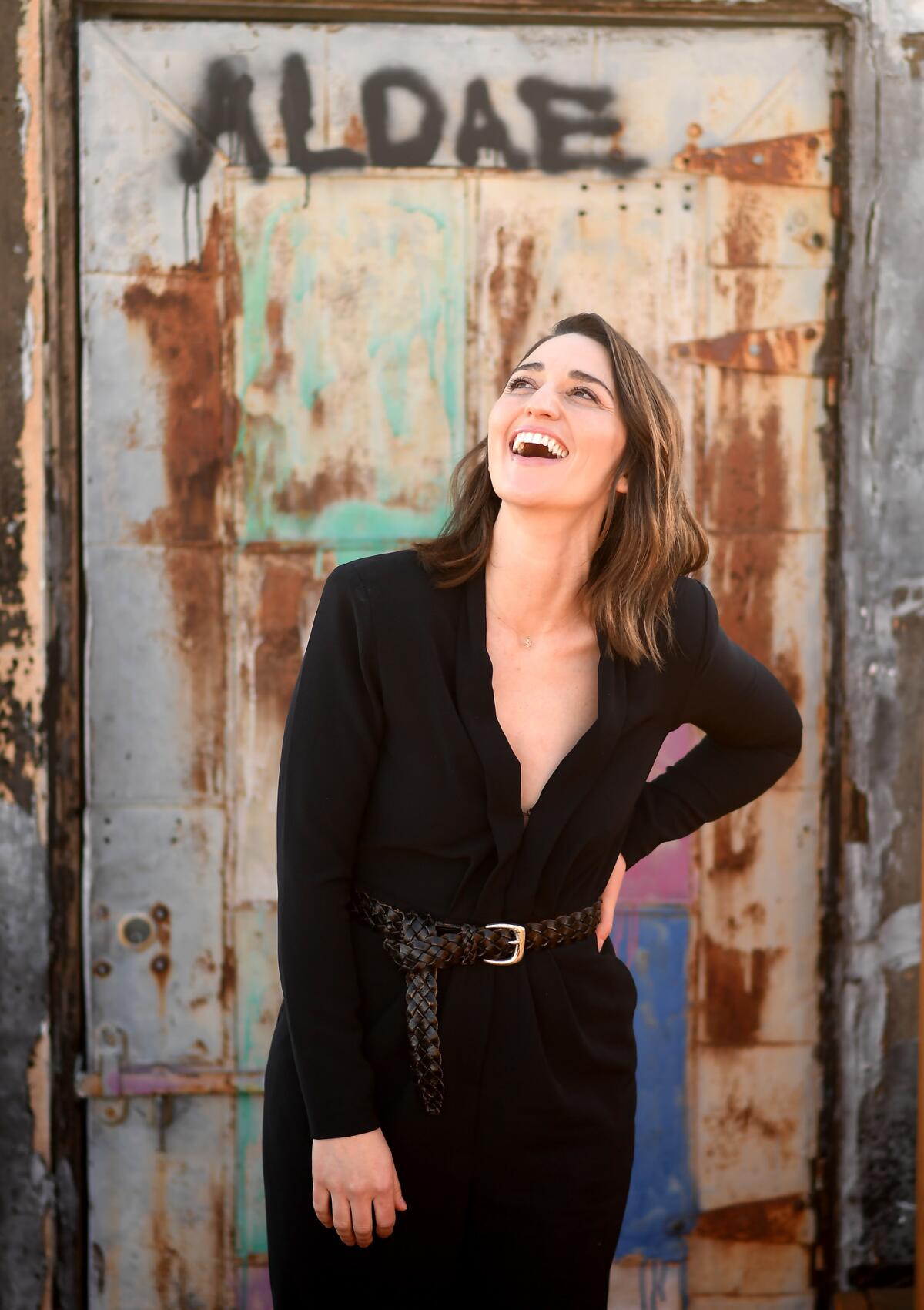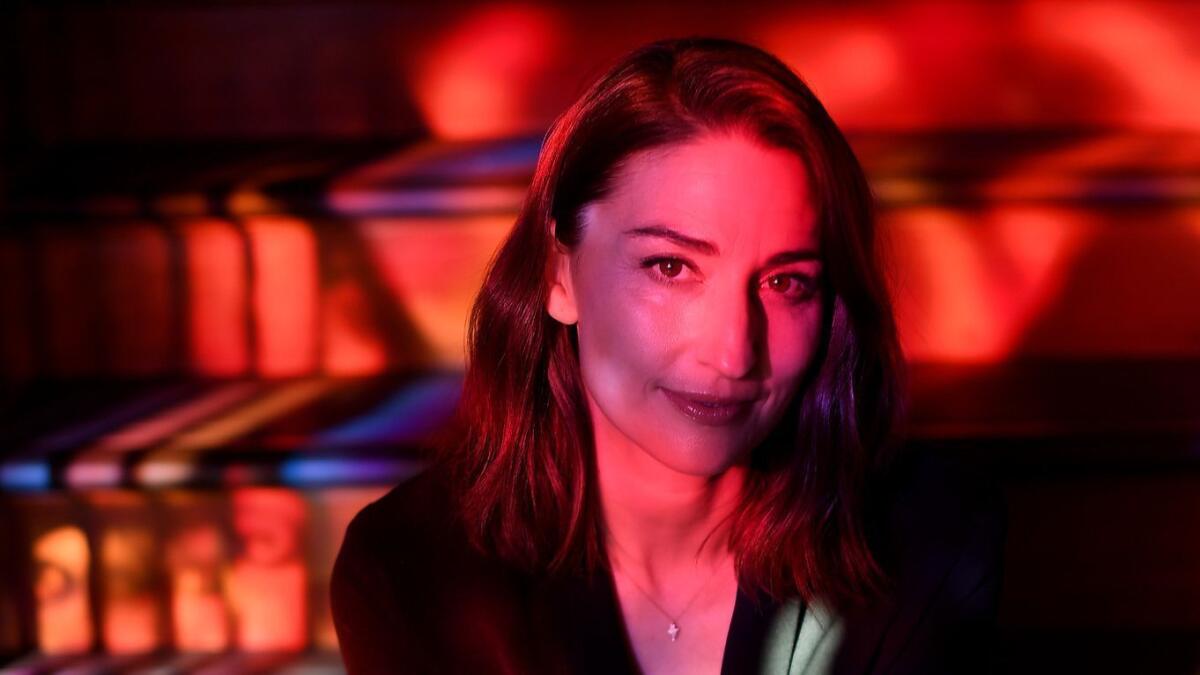Why Sara Bareilles, with a raw new album, is no longer ‘terrified of upsetting anybody’

- Share via
It wasn’t that Sara Bareilles hadn’t been onstage in a few years — far from it, in fact. It was just that, until a recent evening at the Troubadour, she’d been performing mostly in someone else’s voice.
A familiar presence since her deceptively cheerful 2007 hit “Love Song” — about how she’s “not gonna write you” one “’cause you asked for it” — Bareilles set aside pop-star confession to give musical theater a go with “Waitress,” for which she composed the score (and whose cast she joined for a spell in 2017).
After the Tony-nominated show met with success on Broadway, the singer played Ariel in a concert production of “The Little Mermaid” at the Hollywood Bowl. Then she was Mary Magdalene in NBC’s live “Jesus Christ Superstar.”
So you could understand why Bareilles seemed eager to spill the stories behind the tunes on her new album as she entertained a capacity crowd last month in West Hollywood.

ALSO: Sara Bareilles looks toward life after ‘Waitress,’ being a misfit and songs about Obama »
For the first time in a while, the stories were hers — tales of the hope she found in a fresh romance and of the despair that set in after the 2016 presidential election, when it felt to her like “Mom and Dad had left us with the mean babysitter,” as she put it to laughs from the audience.
But if “Amidst the Chaos” marks Bareilles’ return to autobiographical pop songwriting — her follow-up to 2013’s “The Blessed Unrest,” which earned a Grammy nomination for album of the year — the record also reflects a shift in approach for an artist whose friendly early work demonstrated her reliance on gloss and economy.
Set for release on Friday, “Amidst the Chaos” is looser and more stripped-down, with rootsy arrangements that suggest musicians in a room over the precisely mechanized bounce of her 2013 single “Brave” (which garnered widespread comparisons to Katy Perry’s “Roar”).

And it finds Bareilles, 39, taking up heavier themes than she has in the past, including her experience with depression and her deep misgivings about President Trump’s leadership.
In an interview the day before the Troubadour gig, the singer identified the Women’s March in 2017 as a “pivotal moment” that led to a “personal awakening.”
“It made me realize that my job — my calling as an artist — is to talk about this stuff,” she said at the renowned Village recording studio in West Los Angeles, where she made “Amidst the Chaos” under the same roof that once housed the likes of Bob Dylan and Fleetwood Mac.
“Watching my family and my friends and my peers go through the muck of feeling like the world’s on fire, it’s like, How do you cope? How do you keep putting one foot in front of the other?”
The album that resulted from those questions coheres in a way that’s new for Bareilles, whose previous efforts could feel neither fish nor fowl: too slick for a singer-songwriter, too earnest for a true pop trendsetter.
Here, in contrast, she strikes the right blend of style and substance in songs such as the dreamy, lovelorn “No Such Thing” and “A Safe Place to Land,” a hymn-like duet with John Legend about family separation at America’s southern border.

“Sara makes a genuine emotional connection” on “Amidst the Chaos,” said Legend, who played the title role opposite Bareilles in “Jesus Christ Superstar.” “I was moved as soon as I heard it.”
For help carrying out her vision, Bareilles enlisted T Bone Burnett, the veteran record producer known for his work with Elvis Costello and Brandi Carlile, among many others. The singer said she’d admired Burnett since she was a teenager, when his role on Counting Crows’ 1993 debut, “August and Everything After,” led her to add his name to a list of dream collaborators she kept on a yellow legal pad.
Yet she wasn’t actually ready to team up with him until now.
Seated in a small control room at the Village perfumed with old weed — “Can’t you smell the inspiration?” she asked — Bareilles explained that something had “relaxed” inside her recently that prepared her to record as Burnett does, with little fear of unscripted accents or imperfections.
“I go back and listen to my earlier records and I can feel my own rigidity,” she said. This time she sang live in the studio accompanied by expert players including guitarist Marc Ribot and drummer Jay Bellerose.
Burnett said his goal was a “less worked-on record” — one that simply captures “what Sara does, because she’s extraordinarily good at what she does.” And indeed for the first time you get a real sense of her talent not just as a shaper of catchy hooks but as a singer and a storyteller.
Asked what inspired this relaxation, Bareilles credited her experience in the highly collaborative theater world, which taught her “not to be so precious” with her material. She also said that when she refocused on pop, she found the music had grown more “processed” while she was away.

ALSO: ‘Waitress’ proved the power of women at the box office. Will its success change theater? »
“Sometimes I can’t even tell the voices apart,” said the singer, who moved to New York in 2013 after more than a decade in L.A. Rather than join in, “it felt more interesting to go in the other direction.” She shrugged.
“That could certainly be the fact that I’m no longer in my 20s. But I just don’t feel the need to be in competition with anything.”
In a sense, she’s not: None of the new album’s singles have charted on Billboard’s Hot 100, let alone broken into the top 40 as “Love Song” and “Brave” did.
But along with a lower commercial profile has come an increased willingness to risk “pissing people off,” she said with a laugh.
At the beginning of her career, Bareilles “was terrified of upsetting anybody,” she said. “It was paralyzing.” Now, “it’s more important to me to say what feels true than to worry that someone’s not going to buy my record because they know I don’t like Trump.”
At the Troubadour, she revealed that she’d written the soulful “If I Can’t Have You,” in which the singer seems to pine for a lost lover, about the Obamas. And “Armor” is a vivid assertion of womanly strength at a moment when many view the president as a symbol of institutionalized misogyny.
“What you didn’t do to bury me / But you didn’t know I was a goddamned seed,” Bareilles sings, “You don’t scare me / I am of the earth.”
Sara makes a genuine emotional connection ... I was moved as soon as I heard it.
— John Legend on Sara Bareilles’ new album
Tapping into that intense personal emotion was rejuvenating after the years she spent on “Waitress,” Bareilles said. And she’s looking forward to playing her new songs on tour this fall.
First, though, she’ll adopt an alternate perspective once again to finish “Little Voice,” a half-hour dramedy series with original music that she and “Waitress” playwright Jessie Nelson are making with J.J. Abrams for Apple’s just-announced streaming platform.
But she’s learned that her stories will be waiting for her when she gets back to them.
“I don’t feel like I have to fiercely guard some essence of myself anymore,” she said, “because it’s not in any danger of disappearing.”

ALSO: Sara Bareilles on the impact of ‘Brave’ and her ‘left-field’ Grammy nomination »
Twitter: @mikaelwood
More to Read
The biggest entertainment stories
Get our big stories about Hollywood, film, television, music, arts, culture and more right in your inbox as soon as they publish.
You may occasionally receive promotional content from the Los Angeles Times.











